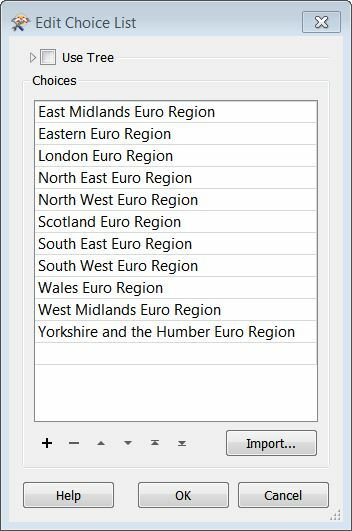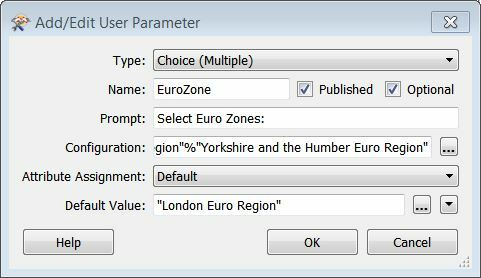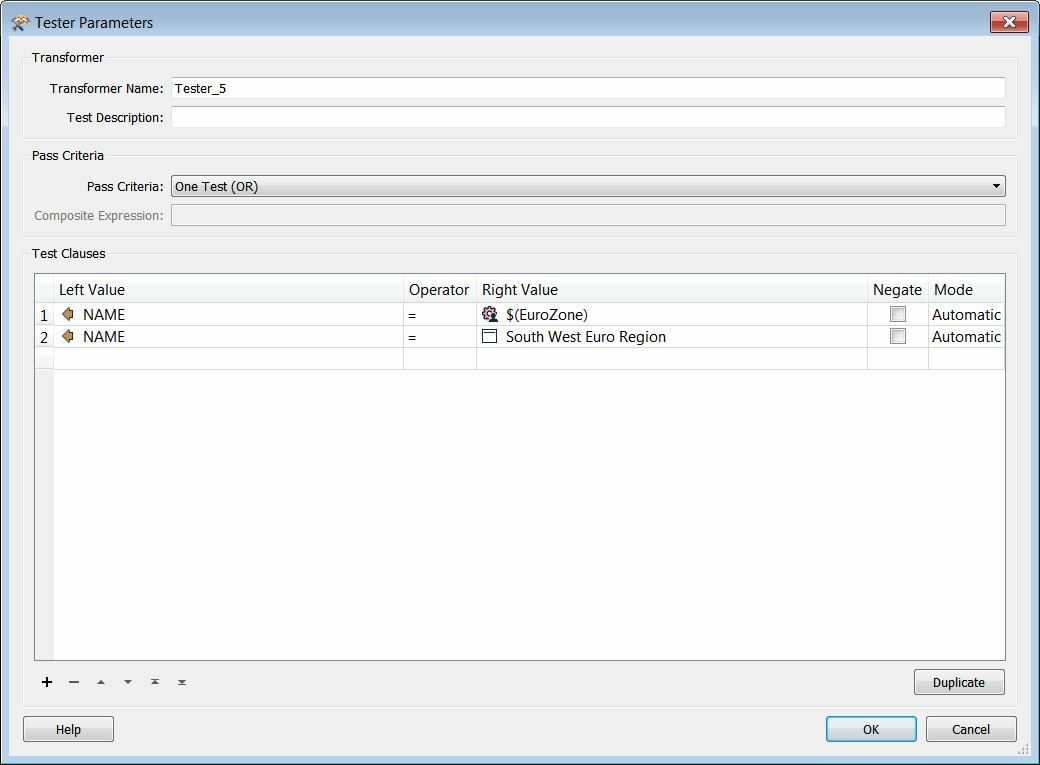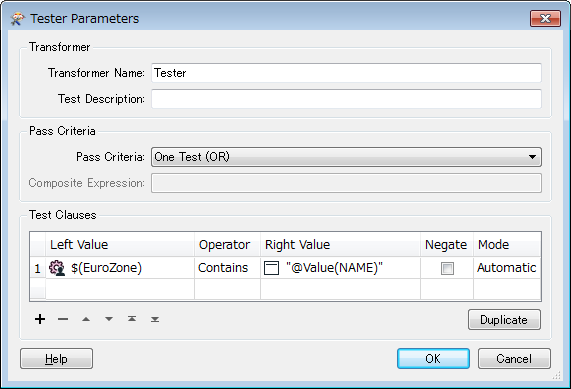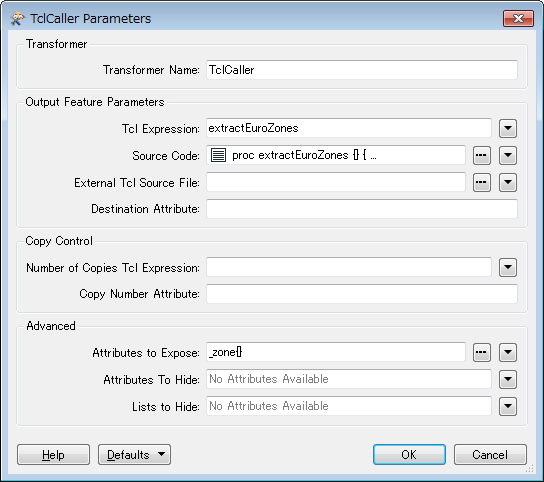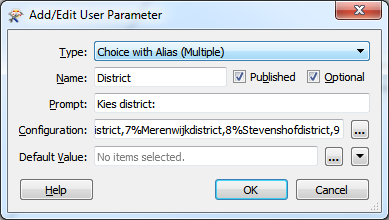I have a tester that lets a shape through when name equals London area, this is fine, but when I add in a user parameter nothing is going through the tester. The only thin I can see is that the user parameter is adding speech marks to the beginning and end of the text string, hence it is not being found. I have imported all of the options from the name field in the shape file.
Any ideas how to solve this?
